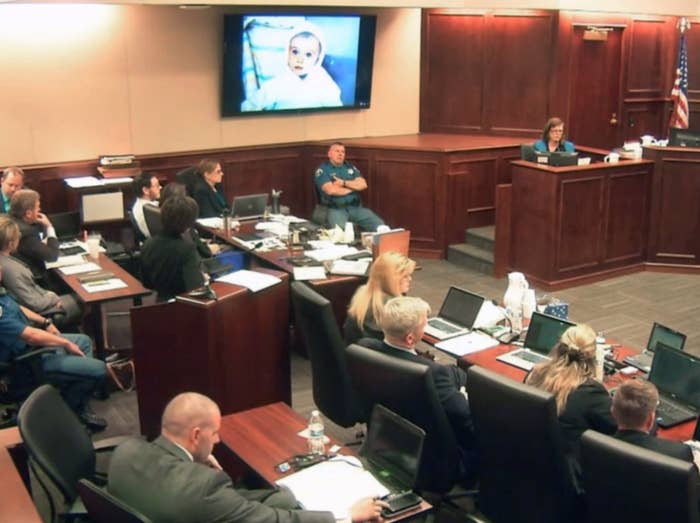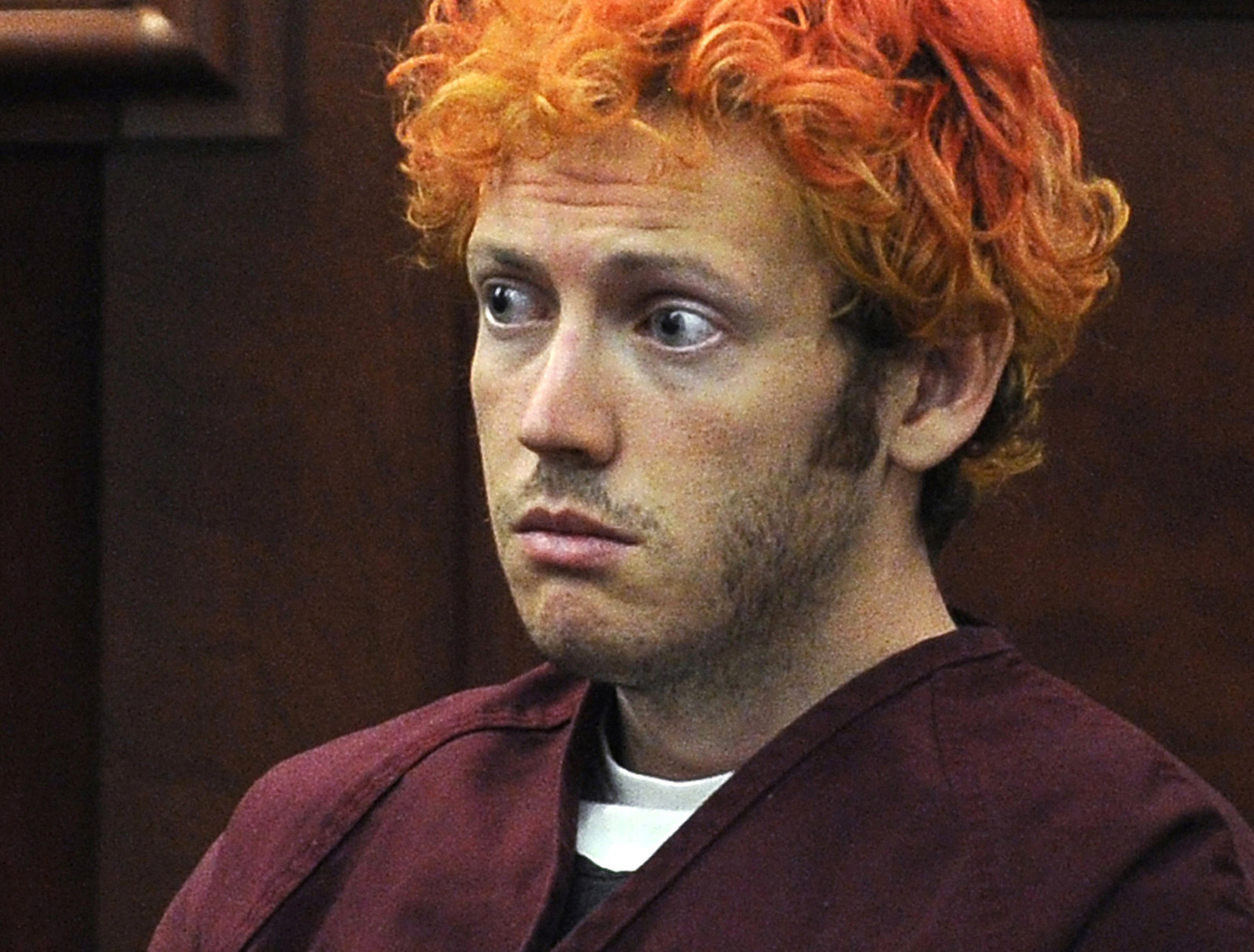
Robert and Arlene Holmes felt lucky to have a son like they did — from an early age, Jimmy did well in school and always kept out of trouble.
As he grew older, they worried a bit about his social awkwardness. Still, he made a few friends, played sports, and kept getting good grades. Everyone in their family tended to be introverted, Arlene Holmes said, so while she wished her son might be more joyful, she didn't have any serious concerns.
"He was the most responsible person I knew, my own son," she testified on Wednesday in a hearing to determine whether the 27-year-old will spend life in prison or be sentenced to death. "He managed his finances, looked after himself completely, went to school every single day without complaint, did all his chores without being told. You tell him once what he needs to do, and he did it. He never harmed anyone ever, ever, until July 20, 2012."
On July 20, 2012, James Holmes fatally shot 12 people in an Aurora, Colorado, movie theater and attempted to kill 70 others. The conviction was a rejection of arguments by his defense team that he was so caught up in a psychotic episode that he did not know what he was doing was wrong.
The same jury must now determine whether Holmes should be sentenced to life in prison or death.
Prosecutors have successfully argued that Holmes showed so little regard for human life that the death penalty should be on the table. This week, defense attorneys have brought forward former neighbors, friends, and finally his family to tell the story of Holmes' life before he stepped into Theater 9 armed and clad in body armor.
"I still love my son because I understand he has a serious mental illness, that he didn’t ask for that," Arlene Holmes said. "Schizophrenia chose him, he didn’t choose it."

Before the shooting, neither of his parents knew he was mentally ill, they said. For hours, they described an idyllic childhood — digging mud holes with his little sister, neighborhood Easter egg hunts, family camping trips, the dogs they had raised. Photographs and home movies showed an extended family that doted on Holmes, the first grandchild on either side.
Around puberty, his mother said she noticed he had become more subdued, had difficulty making friends, and would spend less time outside. They went to family counseling.
"I felt guilty that he wasn’t happier," she admitted. "I know happiness is up to the person, but I'm his mom. So I felt like there was something more I could do."
There weren't any red flags that their son might be having serious issues, Robert Holmes said.
"I was kind of the same way," said the elder Holmes, a statistician who worked for years in the financial services industry. "In some ways, his path was very similar to mine."
Never talkative, Holmes' emails began to get shorter, and his parents said they had difficulty catching him on the phone. Around June 2012, they worried he might become depressed. He had dropped out of his neuroscience graduate program — a goal of his since he was 14 — and broken up with his girlfriend.
His psychiatrist, Lynne Fenton, had also called his parents to ask about him, but didn't relay fears that their son was becoming psychotic and had expressed a desire to kill.
"We wouldn’t be sitting here if she had told me that," Arlene Holmes said on the witness stand. "I would have been crawling on all fours to get to him. He's never said that he wanted to kill people. She didn’t tell me. She didn’t tell me."
They spoke on the phone with their son on the Fourth of July, and made plans to visit. But by this time, Holmes was in the final stages of planning his attack and accumulating an arsenal.
"He was talking quite a bit, and he didn’t seem depressed," his father said. "He did seem to be making sense and everything."

The next time they saw him was after his arrest. With bulging, darting eyes, dyed red hair, and a jail jumpsuit, he looked different from the son they knew. He spoke with difficulty, answering in syllables where he would once speak complete sentences.
Arlene Holmes thought back to a previous phone call on Mother's Day just two months before. He had admitted to having difficulty in school, and like any mother, she had tried to encourage him.
"I didn’t realize that his loudest cry for help was his silence," she said through tears.
